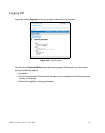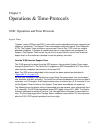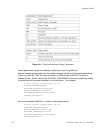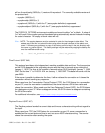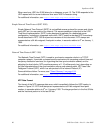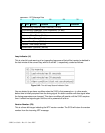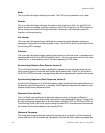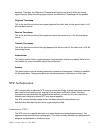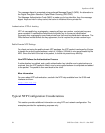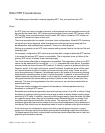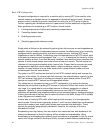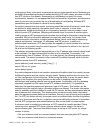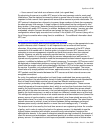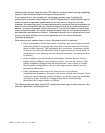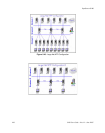S100 User Guide – Rev. D – June 2005 93
2
5
3
detected. Therefore, the Reference Timestamp will indicate the time at which the timing
signal was lost. When the timing signal returns, the Reference Timestamp will be updated.
Originate Timestamp
This is the local time at which the request departed the client host for the service host, in 64-
bit time stamp format.
Receive Time stamp
This is the local time at which the request arrived at the service host, in 64-bit time stamp
format.
Transmit Time stamp
This is the local time at which the reply departed the service host for the client host, in 64-bit
time stamp format.
Authenticator
This field is used to hold a cryptochecksum if authentication has been enabled. Refer to the
next section for more information about this mechanism.
Autokey
This field contains various autokey parameter requests and responses if autokey is enabled
for the association. These parameters can include signatures, certificates, or other data.
NTP Authentication
NTP authentication enables an NTP client to ensure two things: that the time stamp received
has come from a trusted source, and that it has not been modified in transit. Because
Symmetricom has extended the authentication method, you can use it to deny service to
unauthorized clients who submit NTP time stamp requests.
The NTP protocol includes space for two variables related to authentication: an
authentication key identifier field and a cryptochecksum field.
Authentication: NTP v3
The NTP client can operate with both non-authenticated and authenticated servers. This
approach uses symmetric-key cryptography. Thus, keys and key identifiers are determined in
advance and distributed in traditional ways.



